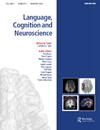根据英语测量短语修正名词预测:视觉世界眼动跟踪的证据
IF 1.8
3区 医学
Q2 AUDIOLOGY & SPEECH-LANGUAGE PATHOLOGY
引用次数: 0
摘要
理解者能否利用意外接收到的信息即时修改他们已有的预测?最近一项针对汉语普通话的研究发现,当听到与预测不一致的名词时,理解者会在短时间内......本文章由计算机程序翻译,如有差异,请以英文原文为准。
Revising noun predictions based on English measure phrases: evidence from visual-world eye-tracking
Can comprehenders use unexpected incoming information to revise their existing predictions on the fly? A recent study in Mandarin Chinese found that, upon hearing a prediction-inconsistent nominal ...
求助全文
通过发布文献求助,成功后即可免费获取论文全文。
去求助
来源期刊

Language Cognition and Neuroscience
AUDIOLOGY & SPEECH-LANGUAGE PATHOLOGY-BEHAVIORAL SCIENCES
CiteScore
4.50
自引率
13.00%
发文量
70
期刊介绍:
Language, Cognition and Neuroscience (formerly titled Language and Cognitive Processes) publishes high-quality papers taking an interdisciplinary approach to the study of brain and language, and promotes studies that integrate cognitive theoretical accounts of language and its neural bases. We publish both high quality, theoretically-motivated cognitive behavioural studies of language function, and papers which integrate cognitive theoretical accounts of language with its neurobiological foundations.
The study of language function from a cognitive neuroscience perspective has attracted intensive research interest over the last 20 years, and the development of neuroscience methodologies has significantly broadened the empirical scope of all language research. Both hemodynamic imaging and electrophysiological approaches provide new perspectives on the representation and processing of language, and place important constraints on the development of theoretical accounts of language function and its neurobiological context.
 求助内容:
求助内容: 应助结果提醒方式:
应助结果提醒方式:


